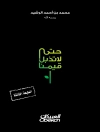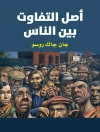Social work has long been working directly with the criminal and civil courts of the justice system. The work of Latin American practitioners in the legal system, however, is little known at global and local levels. This book is the first to go beyond Western-centric appraisals and presents a truly Latin American portrait of social work in the justice system.
The long-term interaction of social work practitioners with the judicial system enabled them to develop an expertise to dialogue with other disciplines such as law and psychology. This knowledge is very important to identify and share with other professionals to develop specialized programs for education and training. In this sense, positive and negative experiences of social work in the justice system allow one to improve its practice. It is crucial to identify local experiences and the great dilemmas that the profession faces on this subject. The volume’s chapters deal with these dynamics in Latin American countries including:- Forensic Social Work: The construction of possible ways of the criminal intervention
- Socio-Legal Social Work in the Field of Criminal Defense
- Family and Community Life: Contributions of Social Work to the Debate in Family Courts
- Support to Victims in High-conflict Scenarios: An approach from the socio-legal, the pedagogical, and the care perspectives
- The Assessment of Child and Adolescent Sexual Abuse Allegations from a Social Work Perspective
Latin American Social Work in the Justice System is essential reading for students, researchers, academicians, policymakers, and practitioners who are interested in international social work with a special focus on Latin American countries and legal culture. Students and scholars in law, development studies, and public policy as well as psychologists working with and interested in the judicial system would also find this book a useful resource.
สารบัญ
Part I Introduction.- Chapter 1 Latin American Social Work Practice in the Justice System.- Part II Forensic and Socio-Legal Social Work in Latin America.- Chapter 2 Family Courts in Chile and the Evolution of Socio-Legal Social Work.- Chapter 3 The Role of Work Product Review and Consultant in Forensic Social Work.- Chapter 4 Forensic Social Work: The construction of possible ways of the criminal intervention.- Chapter 5 Socio-Legal Social Work in the Field of Criminal Defense.- Part III Forensic and Socio-Legal Social Work with Family and Community.- Chapter 6 Family and Community Life: Contributions of Social Work to the Debate in Family Court.- Chapter 7 Support to victims in high-conflict scenarios: An approach from the socio-legal, the pedagogical, and the care perspectives.- Part IV Forensic and Socio-Legal Social Work with Youth and Women.- Chapter 8 The Assessment of Child and Adolescent Sexual Abuse Allegations from a Social Work Perspective.- Chapter 9 Decision-Making Related to Termination of Parental Rights: A Case Study of Child Protection in Chile.- Chapter 10 Fundamentals and Professional Practices in Uruguay’s Juvenile Justice System.- Chapter 11 Differences and similarities of the Juvenile Criminal Law: A comparison between Chile and Mexico.- Chapter 12 Social Vulnerability and Some Considerations Regarding Crime Committed by Minors in Costa Rica.- Chapter 13 Experiences of women with disabilities in the Mexican Criminal Justice System: A gender-based analysis.
เกี่ยวกับผู้แต่ง
Claudia Reyes-Quilodrán, Social Work, MA, Ph D is an Associate Professor in the Social Work School at Pontificia Universidad Católica de Chile. She received her Ph D from Washington State University in 2009. Her areas of specialization include political psychology, criminal justice and Latin American studies. Her most recent research projects include juvenile delinquency and gender; prison violence; professional judgment in the intervention with vulnerable families; engagement in the social work interventions; and comparatives studies in juvenile restorative justice. She has a long experience working with victims affected by severe human rights violations during the Chilean military regimen, and she has worked in the National Child Social Service and the state agencies to prevent crime and violence in Chile. She has developed her career in the socio-legal field.
Rajendra Baikady, Ph D is an Assistant Professor at the Department of Social Work, Central University of Kerala (CUK), India and a Senior Research Associate at the Department of Social Work and Community Development, University of Johannesburg, South Africa. Prior to joining CUK, he was a Special Post-Doctoral Fellow and Assistant Lecturer at the Department of Social Work, University of Johannesburg, South Africa (2020-2022). He completed his first Post-Doctoral Fellowship at the Hebrew University of Jerusalem, Israel (2019-2020) and was awarded the Golda Meir Fellowship by Lady Davis Trust at Hebrew University of Jerusalem. He was also a recipient of the Taiwan Government’s Short Term Research Award (2018) for academic research at National Chengchi University, Taiwan and the Confucius Institute Understanding China Fellowship by the Government of China (2018-2019) for academic research at Shandong University, China. Dr. Baikady is the founding Editor-in-Chief of Discover Global Society, an international journal (Springer).
Ongoing major publishing projects by Baikady include: The Palgrave Handbook of Global Social Problems - by Palgrave Macmillan, UK (Editor-in-Chief) and The Palgrave Handbook of Global Social Change - by Palgrave Macmillan, UK (Editor-in-Chief). He is also the editor of following four book series published by Springer - Springer Series in International Social Work, Springer Briefs in International Social Work, Springer Series in Social Work and Social Change, Springer Briefs in Social Work and Social Change. He is a Fellow of the Royal Society of Arts in the United Kingdom.












